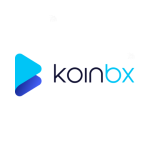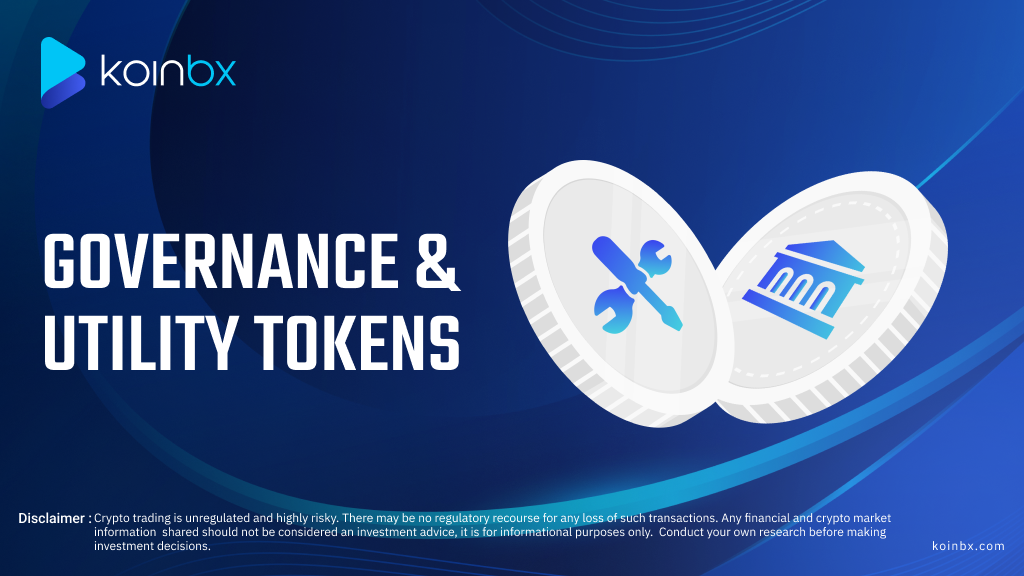Crypto assets and blockchain have revolutionized the way we think about digital assets and ownership. Blockchain has not only brought forward decentralized finance (DeFi) but also changed how assets are owned and transferred, with the rise of digital tokens. But with so many terms flying around in the crypto world, it can be tough to keep up. Two major types of tokens that play an essential role in blockchain ecosystems are governance tokens and utility tokens. So, what exactly are they, and how do they work? Let’s break it down in simple terms!
What are Governance Tokens?
Governance tokens are digital tokens that give holders a say in how a particular blockchain project or decentralized organization (DAO) operates. Imagine a school where instead of a principal making all the rules, every student gets to vote on what should happen. That's a bit like how governance tokens work.
Governance tokens are issued by decentralized projects, mainly those that operate through a DAO (Decentralized Autonomous Organization). A DAO is an online community or organization run by smart contracts, where decision-making is decentralized, meaning there is no central authority. The people who hold governance tokens are the ones who get to vote on important matters that affect the project, such as making decisions on upgrades, changes in the rules, and project funding.
Just like owning shares in a company gives you a voice in company decisions, holding governance tokens means you have a stake in the decision-making of a project. The more governance tokens you have, the stronger your vote is in these decisions.
Also read : Top Crypto Trends To Watch In 2025
How do Governance Tokens Work?
In the world of DAOs, the process works a bit like a democracy. Instead of decisions being made by a group of executives or directors, governance tokens let the community vote on proposals and changes. Here's how it generally works:
1. Voting on Proposals: When someone wants to make a change to the project or suggest new ideas (for example, launching a new feature or tweaking the existing rules), they create a proposal.
2. Voting Power: Every holder of governance tokens can vote on these proposals. The more tokens you hold, the more weight your vote carries.
3. Final Decision: Once enough votes are cast, the proposal either gets approved or rejected based on the community's decision.
So, in a DAO, the community is in charge, and the governance tokens act as a voting tool to influence important decisions.
Examples of Governance Tokens
Some popular examples of governance tokens include:
1. Uniswap (UNI): Uniswap is a decentralized exchange (DEX), and the UNI token gives users voting rights to influence decisions on how the platform runs.
2. Aave (AAVE): Aave is a lending and borrowing platform in the DeFi space. Holders of AAVE tokens can vote on various protocol changes and updates.
3. MakerDAO (MKR): MakerDAO is a decentralized lending platform. MKR holders vote on decisions related to the stability of the Dai stablecoin.
These tokens give their holders power, much like shareholders in a company, allowing them to impact how the project evolves.
What are Utility Tokens?
On the flip side, utility tokens are a little different. As the name suggests, utility tokens are like digital keys to access certain features or services within a blockchain platform. They are used to pay for goods, services, or features within a platform or decentralized application (dApp).
In the blockchain world, utility tokens help you access the platform’s offerings, making them an essential part of the ecosystem.
Utility tokens are mainly used to enable certain actions in the platform, and they can either be the native token of a blockchain or a token specifically created for a decentralized app. The key point is that they are necessary for using the platform or its services.
Also read : KoinBX 2024: Reflecting on Achievements and Forging New Paths
How do Utility Tokens Work?
Utility tokens work by granting access to a platform's features. Here’s an easy way to understand it:
1. Accessing Services: You might need a utility token to use a specific service. For example, a decentralized platform like Brave Browser uses its Basic Attention Token (BAT) to reward users who engage with ads.
2. Paying for Services: On platforms like Chainlink, the native token LINK is used to pay node operators who help retrieve data for smart contracts.
3. Unlocking Features: Some platforms use utility tokens to unlock extra features, such as discounts or special privileges, for token holders.
Utility tokens are often designed to improve the experience of using a platform. Without these tokens, users may not be able to access the services the platform offers.
Examples of Utility Tokens
Some examples of well-known utility tokens include:
1. Chainlink (LINK): Chainlink's LINK token is used to pay for services within its decentralized Oracle network. It’s used to get smart contracts the data they need.
2. Brave (BAT): The Basic Attention Token (BAT) is used within the Brave browser to reward users who interact with ads and content creators.
Utility tokens are generally designed to be useful and valuable to the community or ecosystem they support.
Comparing Governance Tokens and Utility Tokens
While both governance tokens and utility tokens are crucial in the blockchain ecosystem, they serve different purposes. Here's a simple comparison:
As you can see, governance tokens are more about control and decision-making, while utility tokens are about access and usage.
Final Thoughts
In the world of crypto and blockchain, both governance and utility tokens are essential but serve different roles. Governance tokens allow users to have a say in the future of a project or platform, making them like digital "voting cards." Utility tokens, on the other hand, act as the digital currency you need to use services within a platform, much like a ticket to a concert or an app subscription.
As a budding crypto trader, understanding the difference between these two types of tokens is important. By getting familiar with how they work, you'll be able to make smarter decisions when exploring new crypto projects or deciding where to put your money. Whether you’re looking to have a say in the future of a project or simply want to use its services, knowing the role of each type of token will give you a solid foundation to build your crypto knowledge.
Download KoinBX Android App | Download KoinBX iOS App
Disclaimer: Any financial and crypto market information shared should not be considered investment advice. It is for informational purposes only. Conduct your own research before making investment decisions. Crypto trading is unregulated and highly risky. There may be no regulatory recourse for any loss of such transactions.






Comments